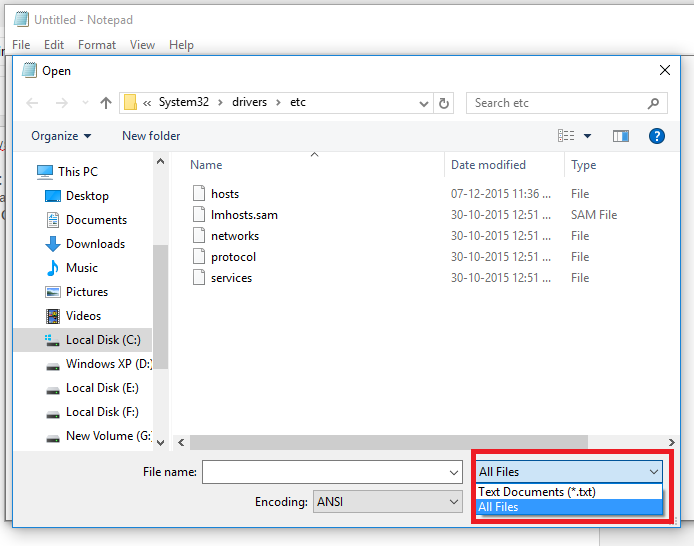

The first method of managing multiple users for authenticating a server is the most toilsome as compared to the other two.
#HOSTS FILE HOW TO#
The below screenshot shows how to use the StrictHostKe圜hecking=no option:

Ssh-keyscan -H -t rsa ‘your-server-ip’ > /etc/ssh/ssh_known_hosts Also, to make this work, the ssh-keyscan command can be used: Register all your hosts in a master or primary ssh_known_hosts file and then orchestrate this file to all the client hosts.Use a command-line option -o StrictHostKe圜hecking=no with each client while accessing the server over SSH (not recommended).Manually appending the public key of the server to the known_hosts file of each user.So, If you have multiple users, you can bypass the SSH interactive prompt using three ways: For example, you are running some sort of configuration management tool like Ansible and you don’t want the client host to ask for server key verification. Sometimes you want a server to be authenticated to multiple users without being prompted for server key verification. Managing Multiple Authenticated UsersĪs mentioned earlier, once a client host successfully connects to a remote server, its known_hosts file is appended with the server’s public key. Next time when you connect to this server, the client host will create a new host key for this server. Whatever be the reason for this change, you will need to first delete the old key from the known_hosts file for reconnecting to the remote server. Sometimes a server’s or host’s key is intentionally altered either by the administrator or due to re-installation of the server. In this way, you can ensure that the remote server or host has not been compromised. In such a case, you can contact the remote server’s administrator prior to accepting this new key. Keyboard-interactive authentication is disabled to avoid man-in-the-middle attacks. Offending key in /home/.ssh/known_hosts:1 Please contact your system administrator.Īdd correct host key in /home/.ssh/known_hosts to get rid of this message. It is also possible that the RSA host key has just been changed. Someone could be eavesdropping on you right now (man-in-the-middle attack)!

This could either mean that DNS SPOOFING is happening or the IP address for the host and its host key have changed at the same WARNING: REMOTE HOST IDENTIFICATION HAS IS POSSIBLE THAT SOMEONE IS DOING SOMETHING NASTY! You'll be alerted immediately about this change: WARNING: POSSIBLE DNS SPOOFING RSA host key for xyz remote host has changed,and the key for the corresponding IP address xxx.yy.xxx.yy is unknown. If there is a change in the public key of the remote server, your system will note this change thanks to the information stored in the known_hosts file. Imagine that you connect to a server regularly and have added it to the known_hosts file. If you go with yes, the identity of the server is saved to your system. The authenticity of host '194.195.118.85 (194.195.118.85)' can't be established.ĮD25519 key fingerprint is SHA256:wF2qILJg7VbqEE4/zWmyMTSw圓ja7be1jTIg3WzmpeE.Īre you sure you want to continue connecting (yes/no/)? The message basically asked if you wanted to add the details of the remote system to your system. When you connect to a new remote server via SSH, you are prompted whether you want to add the remote hosts to known_hosts file. It also helps in avoiding the man-in-the-middle attacks. This is a very important file that assures that the user is connecting to a legitimate server by saving its identity to your local system. The known_hosts file stores the public keys of the hosts accessed by a user. This ~/.ssh/known_hosts file is a vital part of client SSH configuration files. The focus of this article is on the last file, known_hosts. It is not a common file and I have created it specifically. The config file in SSH is used for creating profiles to connect easily to various hosts. Here, id_rsa is your private SSH key, id_rsa.pub is the public SSH key. rw- 1 abhishek abhishek 1 Sep 26 15:00 known_hosts rw-r-r- 1 abhishek abhishek 398 id_rsa.pub rwxr-xr-x 1 abhishek abhishek 618 Aug 30 16:52 config ssh folder in your home directory, you'll see a known_hosts file among other files.


 0 kommentar(er)
0 kommentar(er)
